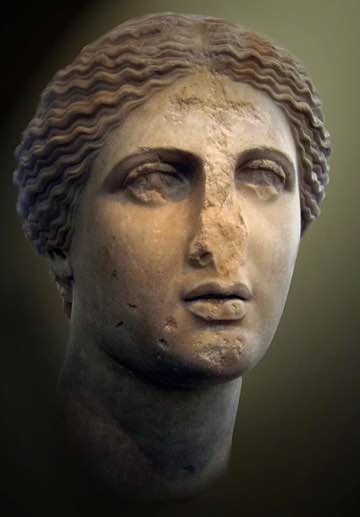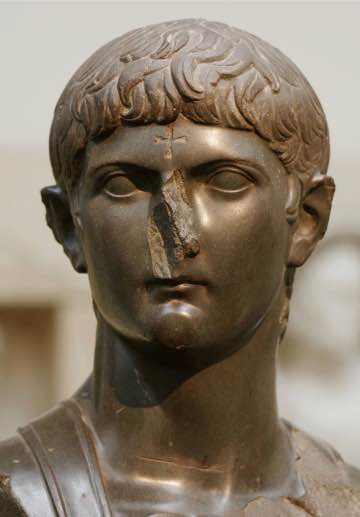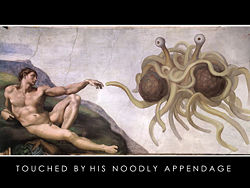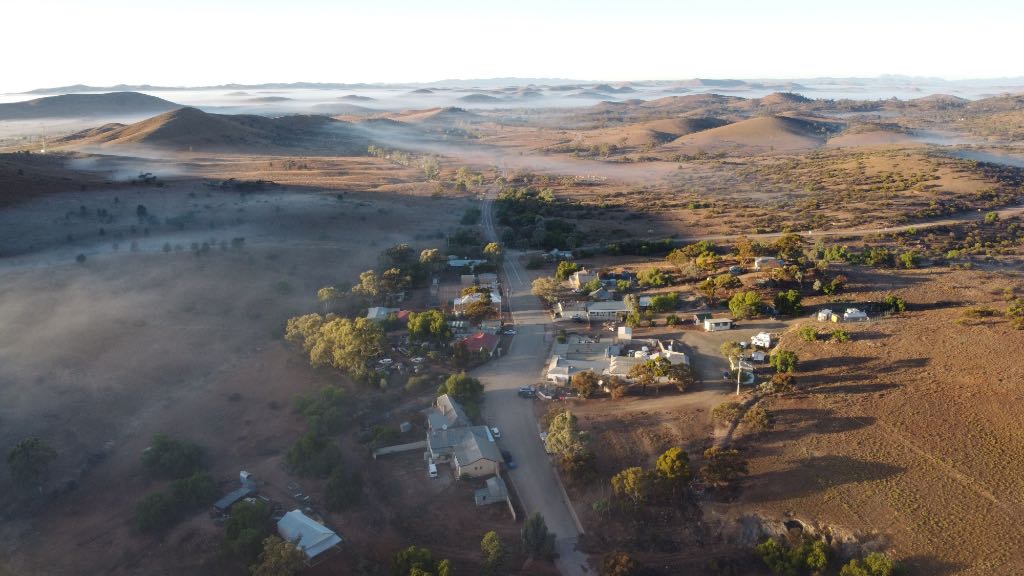| |
This section edited
2024/02/11
|
|
| |
"Good people will do good things, and bad people will do bad things. But for good people to do bad things – that takes religion."
Steven Weinberg, Nobel laureate
I have to slightly disagree with Steven Weinberg on this point, I would replace 'religion' with 'delusion'. The required delusion can be religion, but other delusions will also serve the purpose. For example, a well-meaning person ran a campaign trying to link wind turbines with bad health from about 2010 to 2014 in Australia; but, of course, the link existed only in the imagination of a number of gullible people.
|
|
Several of the greatest of the social systems that grew around religions came to be intolerant, self-centred and tyrannical. That seems to be a tendency for any social system, religious or secular, that comes to dominate a region, nation or community. Those in charge seek to gain more and more power over the powerless majority, simply because they can.
I'm thinking here particularly of the Christianity adopted as the official religion of the Roman Empire by Emperor Theodosius around 390AD. Once the Christians gained ascendancy they started destroying the remains of the classical world because they would not tolerate the worship of the old gods.
Islam, too, once it gained power in the Middle East, it began a war of invasion of its neighbours.
And the squabbles between the Shia and Sunni versions of Islam came around the same time and have continued to the present.
The Christian establishment in Europe held back free thought, clear thinking in ethics and scientific advance for much of the period from the fall of the Roman Empire to the Renaissance and beyond. The delusion that is religion is still stopping the majority of humans from access to fully rational thought.
I have summarised elsewhere how much there is in the Christian 'holy books' that were shockingly unethical by any reasonable standards elsewhere in these pages. What the Christian call the Old Testament was based primarily on the 24 books of the Hebrew Bible or Tanakh. It is also holy to the Muslims. I have written on the horrors that the Bible records as being done by 'holy' people elsewhere in these pages.
| |
|
|
|---|
A few examples of statues of the classical age of Greece and Rome that have been defaced by Christian vandals are below...
|

| The godess Aphrodite
|
|
|
|
|
|
|

| Germanicus Julius Caesar
|
|
Ms Nixey wrote about how Christianity, once it became dominant in the classical world, was responsible for the destruction of much that was good in what Greece and Rome had built up.
In her introduction Ms Nixey writes of the early Christian destruction of the classical world:
"The Christian assault was not the only one - fire, flood, invasion and time itself all played their part - but this book focuses on Christianity's assault in particular. This is not to say the the Church didn't also preserve things: it did. But the story of Christianity's good works in this period has been told again and again; such books proliferate in libraries and bookshops. The history and the sufferings of those whom Christianity defeated have not been."
and
"As Samuel Johnson would put it, pithy as ever: 'The heathens were easily converted, because they had nothing to give up.'
He was wrong. Many converted happily to Christianity, it is true. But many did not. Many Romans and Greeks did not smile as they saw their religious liberties removed, their books burned, the temples destroyed and their ancient statues shattered by thugs and hammers. This book tells their story; it is a book that unashamedly mourns the largest destruction of art that human history had ever seen. It is a book about the tragedy behind the 'triumph' of Christianity."
Ms Nixey records the writing of Celsus who was highly critical of Christianity and its roots in the Old Testament. None of the original works of Celsus have survived; they were all destroyed by the Christian book burners. However, some eighty years after Celsus a Christian apologist by the name of Origen wrote criticising Celsus' work. In his criticism Origin quoted much of Celsus. Ironically, we now know something of Celsus because of Origin's efforts to discredit him.
It seems that the early Christians took the commandments in the Old Testament about graven images seriously to a ridiculous degree; at some places and at some times any statue, whether of a god or a human, was fair game for destruction. At least some of them believed that the sculptures of Greek and Roman gods were, themselves, gods. Or as they saw it, there was only one true God, so the depicted 'gods' had to be demons.
The demons, they thought, could be killed by suffocation if the nose of the statue was broken off. Or the demon could be annulled by having a holy cross carved into its forehead.
To me, an atheist, the Christian fear of the demons in the classical sculptures seems absurd. But what I, and other atheists, must remember is that Christians believe in gods; if there can be one god, the Christian God, why not any number of other gods (or demons) and why could they not be embodied in statues?
A god living in a statue is no more absurd than a god who is everywhere and nowhere. Believers don't need evidence, they don't need common sense, they have faith, they can believe the absurd.
And in many cases, not only the statues, but the temples that housed them were also destroyed. Of course there are a number of passages in the Old Testament that, if taken seriously, could justify this destruction to a believer.
Christian destruction of the classical world: some links
The following are some of the more interesting postings that I found during several Web searches.
Counter-currents: The Christian destruction of the classical world
History Reviewed: Christian atrocities; three centuries of pagan persecution and Christian damage to beautiful pagan statues
Wikipedia: Persecution of pagans in the late Roman Empire
Christian atrocities; centuries of pagan prosecution. This page provides a chronology of the Christian persecution of pagans.
Bad News About Christianity contains some statements that are simply and blatantly false. I have placed the links here in spite of that because the author has gone to a huge amount of time and trouble and I'm sure there is much of value in with the falsehoods. As always, take care in what you believe.
An example of a false, and obviously false, statement in Bad News About Christianity: "Wherever Christians discovered countries that were climatically and economically desirable, the inhabitants were either expelled or exterminated. This happened under Roman Catholics and Protestants alike irrespective of the settlers" country. British Protestants did it in North America, Australia and New Zealand."
Bad news about Christianity: A very extensive and richly illustrated article about Christian persecutions and excesses
Bad news about Christianity: Home page; list of articles, etc.
|
Dwarfing the desecration of ISIS and the Taliban
The Christian destruction of temples, books and art of the classical world dwarfs the Taliban's destruction of the
Buddhas of Bamiyan in Afghanistan in 2001 and the archeological vandalism work of
ISIS.
Edward Gibbon in his monumental work, The Decline and Fall of the Roman Empire, held Christianity partly responsible for the decay of Roman civilisation.
In 2023 there are two nations that could be called theocracies (a system of government in which priests rule in the name of God or a god): Iran and Afghanistan. Both are disasters, particularly in relation to their treatment of women and their contempt for, and denial of, basic human rights.
From April 2021 my web site has gone by the name of "A commentary on an age of contradictions".
One of the greatest contradictions in this age is at the core of both Christianity and Islam. Adherents of both religions are told to believe in two things:
- God is good and merciful;
- If Christians and Muslims don't live according to the rules in their respective holy books God will condemn them to an eternity of torment in Hell.
A person could live an otherwise praiseworthy life, but if he/she doesn't obey particular rules of Christianity/Islam they will go to Hell - for ever.
We are meant to believe that God is good and merciful - but get on his wrong side and he will arrange for you to be condemned to never-ending torture? Really? How could any sane person believe this? Such a god would have to be some sort of sadistic monster!
In the twenty-first century there is an almost universal acceptance that to torture a person or an animal is a crime and very unethical - yet we are to believe that God will organise eternal torture for us if we don't do the right thing according to his rules. And this, we are told, is a good and merciful God.
Judaism seems somewhat ambiguous on the Hell question.
- "Good people will do good things, and bad people will do bad things. But for good people to do bad things – that takes religion."
- Steven Weinberg, Nobel laureate.
- "I wish to propose for the reader's favourable consideration a doctrine which may, I fear, appear wildly paradoxical and subversive. The doctrine in question is this: that it is undesirable to believe a proposition when there is no ground whatever for supposing it true. I must, of course, admit that if such an opinion became common it would completely transform our social life and our political system; since both are at present faultless, this must weigh against it."
- Bertrand Russell, Skeptical Essays, I (1928)
- "Men never do evil so completely as when they do it from religious conviction."
- Blais Pascal
In the community scale religion provides social connection. People connect to others in the same religious group, Catholics feel close to other Catholics, Lutherans feel close to other Lutherans, members of the Uniting Church feel close to other members, Shia Muslims feel close to other Shia Muslims, Buddhists feel close to other Buddhists and Hindus feel close to other Hindus. Most people need to feel that they are part of a community, it is human nature; the group you worship your particular version of God with can provide that community.
But even this has its downside. Just like with ex Australian Prime Minister John Howard's
mateship, those outside the in-group are treated with less consideration than those inside. In fact with religion it can go further than this; those outside of the religious groups are may be mistrusted or feared, even hated, by those inside the group.
Outside of religions there are many service groups that can also provide social connection: Apex, Lions, Rotary, Soroptimist, Country Women's Association, Zonta...
SA Community lists hundreds of such groups within just my home state, South Australia.





